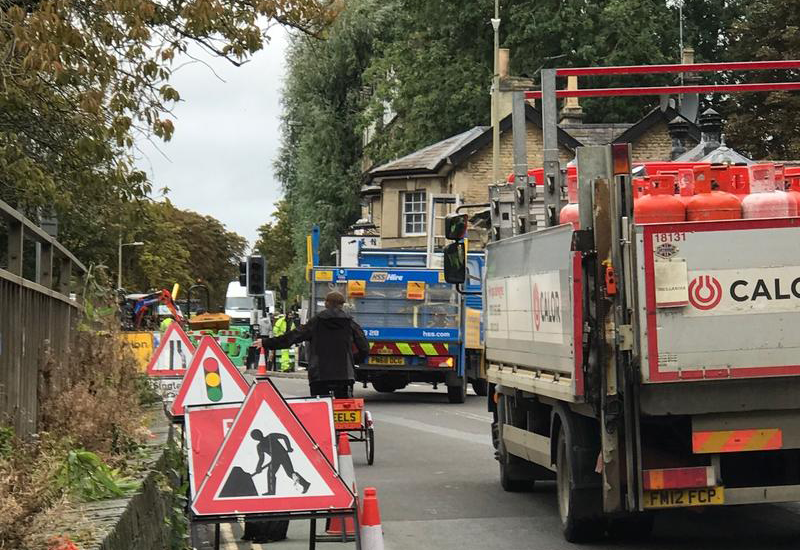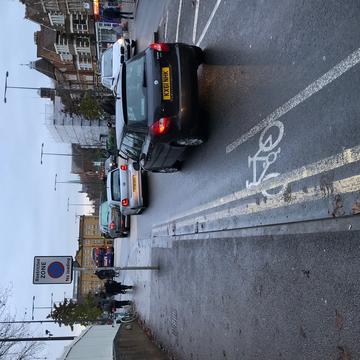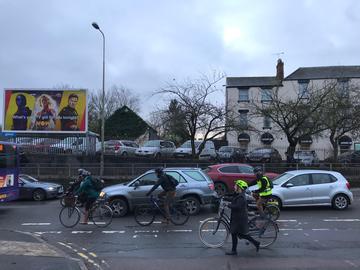A BUMPY (BOTLEY) ROAD TO A NET ZERO OXFORD

A BUMPY (BOTLEY) ROAD TO A NET ZERO OXFORD
Richard Lofthouse considers Oxford’s latest traffic furore, the role of local policy towards global climate ambitions, and whether Network Rail is a secret superhero.
Published: 14 November 2022
Author: Richard Lofthouse
Share this article
Past books about Oxford written by the likes of Jan Morris have tended to play up the perennially Labour City Council at perma-loggerheads with the perennially Conservative County Council.
But it’s not like that now. For one thing, the current County Council, which has primary responsibility for transport, is a coalition of Labour, Green and LibDem.
Faced with the UN’s climate change ‘code red for humanity’ the two councils, to their eternal credit, have united around the hashtag #OxfordtoZero, an umbrella for all the policies that will lead the city towards Net Zero climate emissions, not by 2050 but by 2040.
The schedule objective of 2040 resulted from a Citizens’ Assembly on Climate Change, the first of its kind, that followed the councils declaring a climate emergency in January 2019.
90% of Assembly Members agreed that the UK Government’s current target to reach zero carbon by 2050 is not ambitious enough, and that Oxford should instead aim to achieve net zero by 2040.
The Council website patiently explains the science of climate change, concluding that ‘Reducing our carbon emissions is not impossible, but many aspects of our lives will need to change.’

Carrot follows stick: These changes will not only mean a safer climate – it will also mean new, green jobs, cleaner air and healthier lifestyles.’
Maybe down the road. But right now that road to NetZero in Oxford could hardly appear to be longer or bumpier.
In fact the road is looking closed. Network Rail earlier this month announced that the Botley Road will close for one year beginning in January 2023.
The shock announcement arises from the long-gestated replacement of the long outdated bridge you glide over immediately before the train stops at Oxford, (if you are approaching from Reading).
This is the bridge that crosses the Botley Road, which in turn is the main artery for vehicles coming into Oxford from the west – which for all intents and purposes means many drivers approaching on the A34, anyone coming from the A420 from Swindon and everywhere in between.
Local Julian Le Vay writes in a letter to the Oxford Times that the road closure by Network Rail is ‘extraordinary and unacceptable.’ That’s the polite end of what we might describe as a robust pushback from locals.
Meanwhile Andrew Gant, Council cabinet member for Highway Management, says of the Network Rail ambush, ‘It was not in the playbook but we have to deal with it.’
The immediate consequence of the looming closure may be to force the councils to delay the implementation of part-closures of six main artery roads, previously scheduled to begin on a trial basis in summer 2023.
These six road filters are a core part of #OxfordtoZero, given that transport is estimated to emit 17% of greenhouse gases in Oxford. Any delay is a material set back in the city’s climate strategy.
The proposed road filters that replicate the existing, camera-controlled ‘bus gate’ on the High Street, (on Hythe Bridge Street, Thames Street, Marston Ferry road, St Cross road, Hollow Way, and St Clements) would, as billed, offer generous permits to residents, allow all vans through without constraint (the vast majority with poor real world diesel emissions), and offer plenty of other get-outs to certain road users.
Other critics have suggested, and they may be right, that net mileage and emissions from traffic may (ironically) rise if the same drivers spend more time circumnavigating Oxford on the ring road.

In this sense it could actually be that Network Rail’s more radical ‘complete closure’ strategy is going to help the councils by moving the dial on what #OxfordtoZero will look like, and how quickly the unthinkable can become tolerable, if not downright positive.
It might be akin to how we learned to love Work From Home during and after COVID.
An entire year of road closure might be trigger real change, much of it for the better.
Apart from freeing up the roads for Pedal and Post, the local ‘last mile delivery’ company based in Binsey Lane (already a familiar sight all over the city, delivering web purchases to students and coffee pods to Senior Common Rooms), it will presumably make walking and cycling on the Botley Road a whole lot nicer.
The student body are integral to this vision, yet barely ever get a mention. Students typically do not have motorcars. They walk and they cycle.
When the road filters were still under consultation in October, cabinet member for transport Duncan Enright told The Oxford Student noted, ‘In the past perhaps students haven’t been asked for their views, but that’s changing under the new Labour, Green and Lib Dem Cabinet.’
And then there is the University’s own sustainability strategy which unequivocally encourages active travel and public transport over private cars.
In fact the University’s Environmental Sustainability Strategy, which was approved on 15 March 2021, pursues net zero and net biodiversity gain, both by 2035 - an even more ambitious timetable than the City's.
In light of this immense commitment, the University also supports measures to traffic across the too-congested heart of a medieval city and is hopeful that the proposed bus gates will make the streets safer for pedestrians and cyclists, clean up the air (eventually) and address net mileage and thus climate emissions.
One of the great shocks of recent months has been the death of two members of the University killed while cycling in the city. On 8 February Ellen Moilanen, a Reuben College Academic Administrator, died near Oxford Parkway station having been struck by a lorry, while on 1 March, Ling Felce, a postdoctoral scientist at the Nuffield and the Radcliffe departments of medicine, died at the Plain roundabout having also been struck by a lorry.
It is hard to overestimate what a shock these two deaths have been to the University community, or how urgently they have pinpointed the need for radical change in Oxford’s transport arrangements.
As well as finally remaking Oxford’s railway station (hugely overdue) and re-opening to the public the rather remarkable Cowley branch line, (another contributor to #OxfordtoZero), the Network Rail closure of the Botley Road will for the first time in Oxford’s modern history stop the gridlock that has blighted the Botley Road to the detriment of local air quality and climate policies for so long.
It will do so because there will be no point in queuing along a road that is shut, thus eliminating through traffic, if not the people who want to drive to Waitrose.
Step back from the heat of these apparently local squabbles, and you realise how central they are to wrestling meaningfully with climate change, quite apart from more immediate road safety and air quality problems.
It is encouraging that the concept of Net Zero arose in part from the thinking of the University’s Professor Myles Allen. We profiled him here in QUAD just as COP27 began in November 2022. The idea that an academic insight could have immediate bearing on local policies is, in its own way thrilling.
He spoke frankly about the need to totally end private car use, something that is politically poisonous as things stand, and simply not feasible in a partly rural county like Oxfordshire where the city sucks in employees who could never afford to live there, and in 2022 amidst chronic train strikes.
Not everyone is willing to cycle although I’d wager that many car-bound commuters have yet to try an electric bike with an open mind, and Oxford also has 130 electric buses coming soon.
In too many instances in Oxford the cycle lanes vanish at the most dangerous point, such as coming out of the aforementioned Botley Road railway bridge (see photo). It needs to improve a whole lot more.
I’m writing this with COP27 at the halfway mark. One thing everyone can agree on is that climate objectives will have to be met through local delivery. It’s set to be a bumpy road to anything resembling Net Zero in Oxford – but perhaps that was inevitable.
In the distant past, there was a bitter dispute about having a railway come to Oxford. Much of the opposition came from within the University.
It is reasonable to conclude that people, on the whole, don't embrace change.
The University’s Environmental Strategy can be found here: https://sustainability.admin.ox.ac.uk/environmental-sustainability-strategy
Picture credits: University of Oxford/Richard Lofthouse















